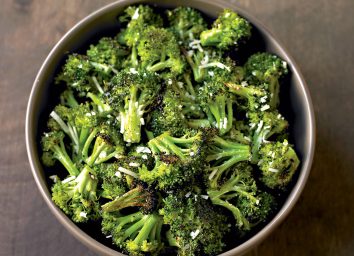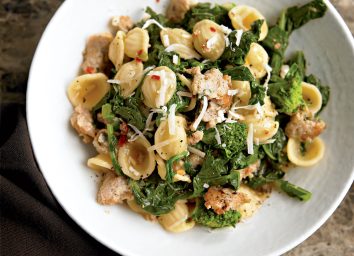What Happens To Your Body When You Eat Broccoli
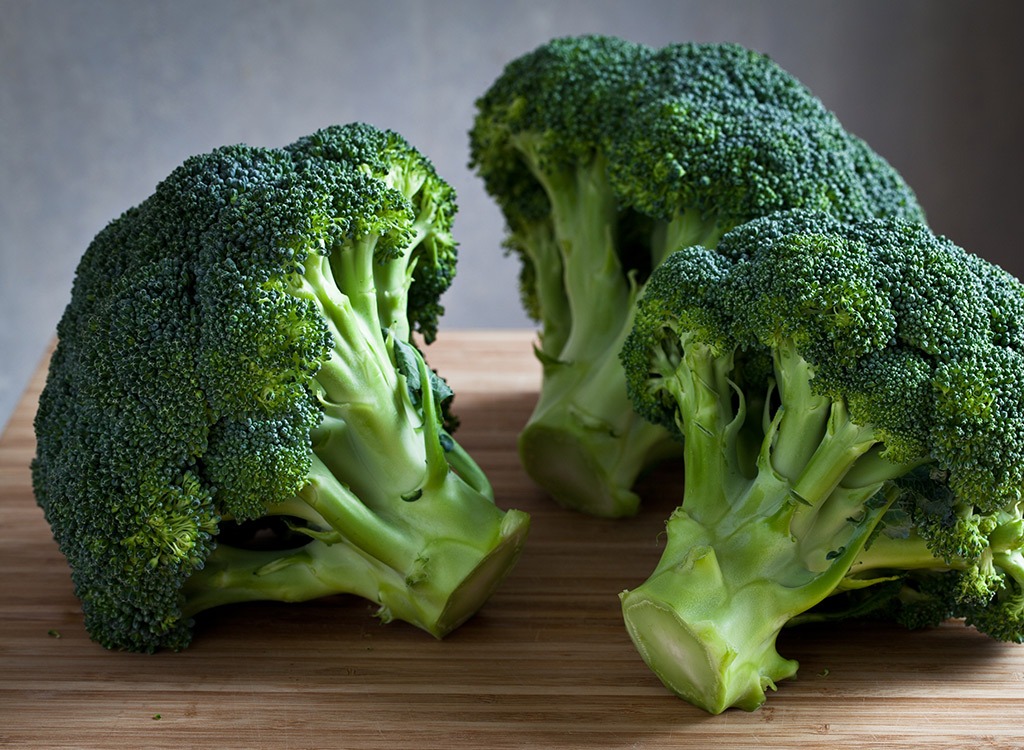
It’s green, it’s packed with good-for-you vitamins and minerals, and it may even make those visits to the bathroom more regular. While broccoli is a nemesis for most toddlers and children, adults grow to love the delicious taste and the versatility this cruciferous veggie offers. After all, it’s the perfect addition to cold or warm salads, the ideal side dish for protein, and even a recommended snack food with hummus. Here, we explore what happens in your body when you eat broccoli and make this green goodie a consistent part of your meal plan. And for even more healthy tips, be sure to check out our list of The 7 Healthiest Foods to Eat Right Now.
You give your body the fiber it needs.
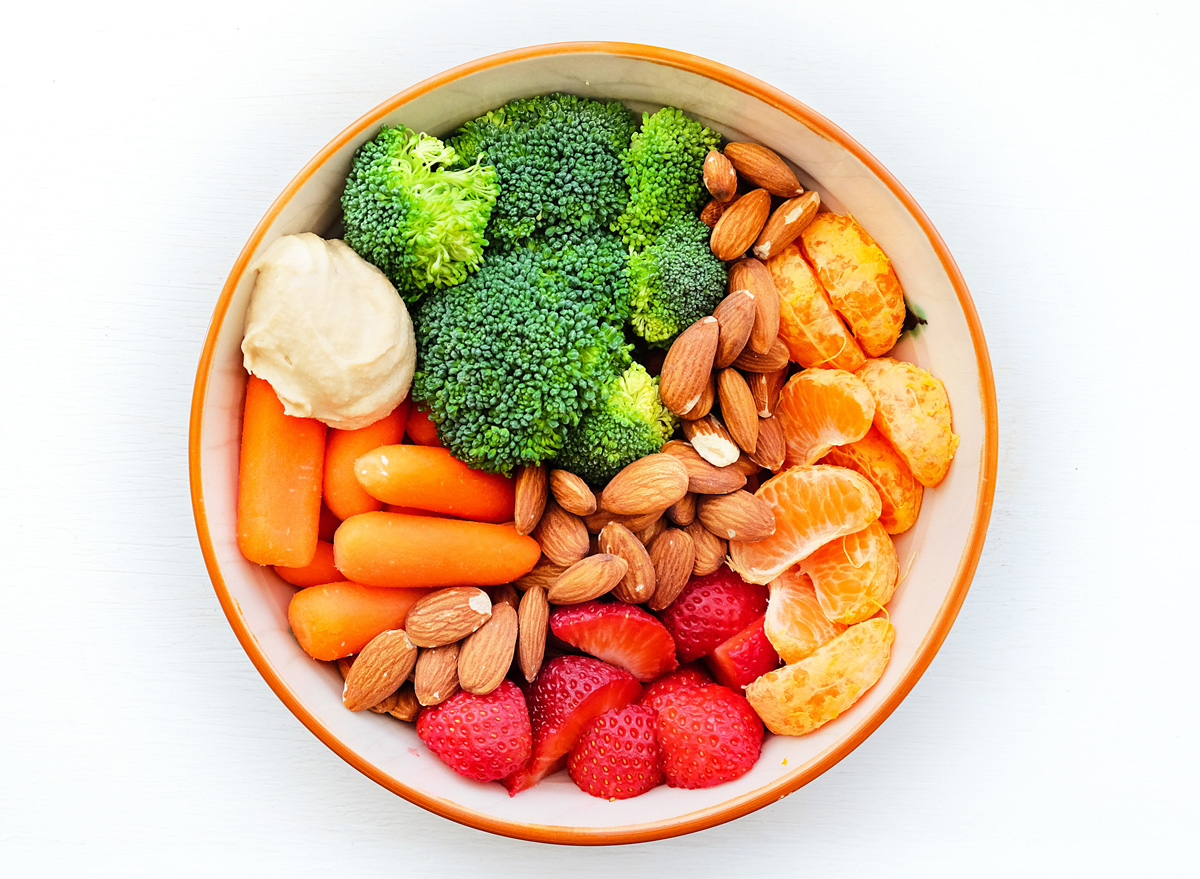
Ever notice you—ahem—release some gas when you eat broccoli? This is partly due to the high fiber content of this veggie. In fact, one cup alone has 10% of the daily recommended fiber intake! But don’t worry, it’s good for you since fiber is an essential component of a healthy diet, says celebrity chef and certified nutritionist Serena Poon.
“Fiber supports your digestive system. It helps food move through your body effectively and also feeds the good bacteria in your gut that keeps you fit,” Poon says.
Here are 9 Warning Signs You’re Not Eating Enough Fiber.
You reduce inflammation.
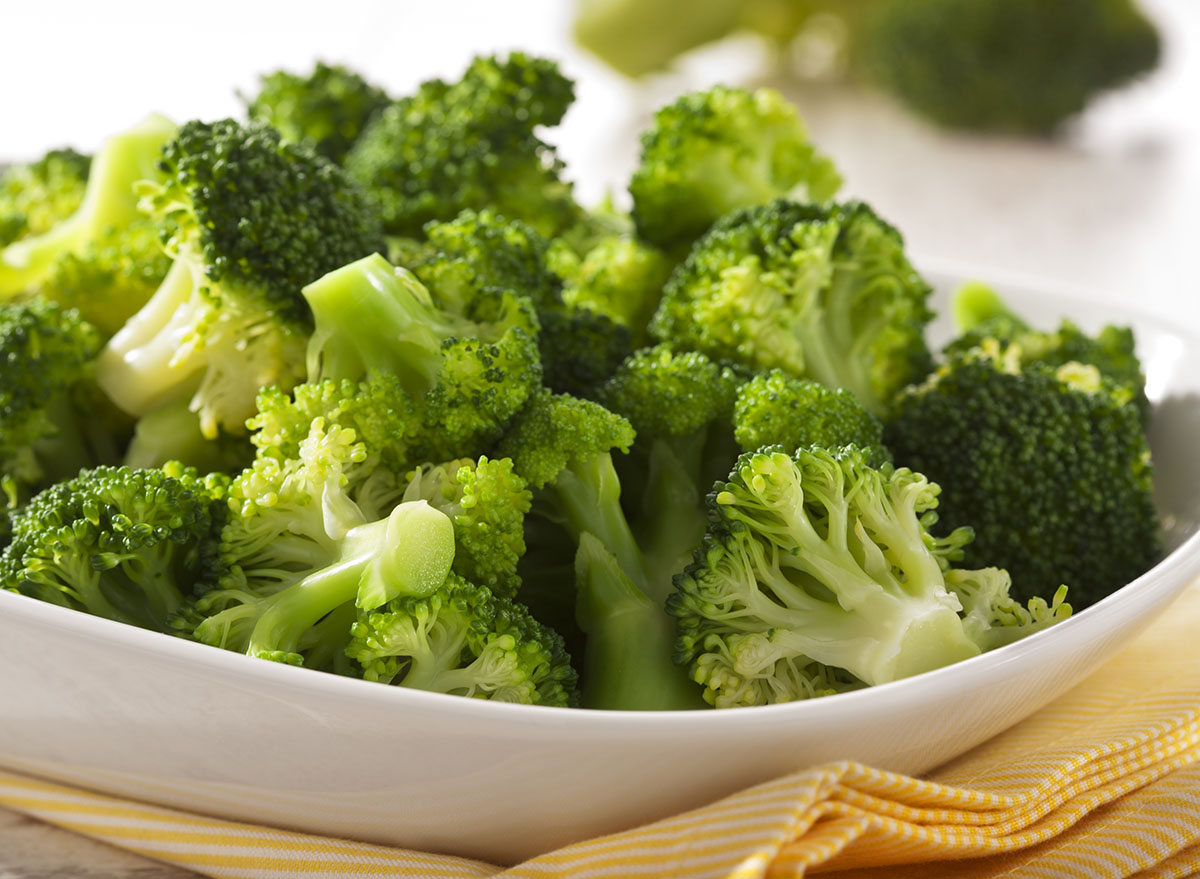
If you are feeling bloated or as if you’re holding on to water weight, broccoli may be a way to relieve the pressure and build-up. How come? Thanks to a star anti-inflammatory called sulforaphane. As a weight loss coach, Stephanie Mansour recommends broccoli to her clients when they experience swelling or other inflammation symptoms.
“This anti-inflammatory also helps keep your blood vessels strong, which is essential in preventing damage in the body,” says Stephanie.
Get even more healthy tips straight to your inbox by signing up for our newsletter.
You give your body a natural multivitamin.

Rather than taking a multivitamin, you might consider adding a cup of broccoli to your lunch or dinner meal plan instead. As Poon explains, it’s incredibly nutrient-dense!
“Broccoli is an excellent source of vitamins E and K, with one cup supplying over the recommended daily value of these vitamins. Broccoli is also a good source of vitamins A and B6, manganese, folate and potassium,” says Poon.
If you want to take full advantage of its nutritional offerings, Poon says to eat broccoli raw. Perhaps with some dairy-free ranch on the side? Or how about with some authentic homemade hummus!
You receive tons of powerful compounds.

Not sure what compounds are? No worries. These are simply the combination of antioxidants, polyphenols and glucosinolates. Each of these offers different benefits, and all are found in this good green guy. As Poon explains:
Antioxidants protect your cells from damaging free radicals from your diet or the environment. An antioxidant-rich diet can help prevent disease and signs of aging.
Polyphenols are incredible plant compounds that would benefit almost anyone’s diet. These compounds are known to protect against diseases such as certain cancers, cardiovascular diseases, diabetes, osteoporosis, pancreatitis, gastrointestinal problems, lung damage, and neurodegenerative diseases.
Glucosinolates are the main star of broccoli. These compounds are found mainly in brassica plants that are evidenced to elicit numerous health benefits with their antimicrobial, antioxidant, anti-inflammatory, and anti-cancer properties.
You improve your gut health.
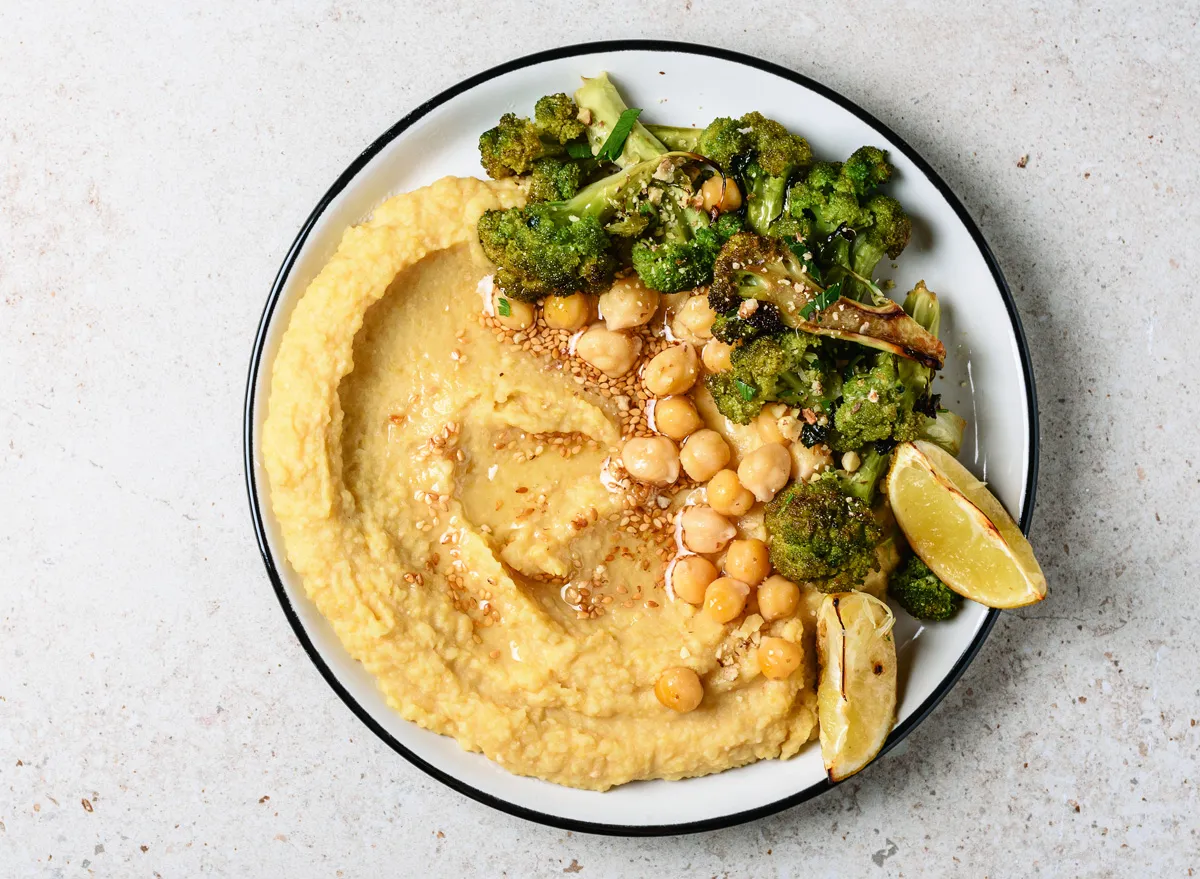
Fun fact: Poon says broccoli delivers natural prebiotics, the fibers that feed and fuel healthy probiotics to your digestive system.
“Along with a diet that is rich in vegetables, fruit, and whole grains, probiotics and prebiotics support a healthy microbiome, a delicate ecosystem of trillions of bacteria that live in your intestines,” Poon says. “A healthy microbiome keeps your digestive system happy and also plays a tremendous role in mental health and immune function.”
Here’s The Best Way to Eat for Your Microbiome and Improve Gut Health.
You protect your body from disease.
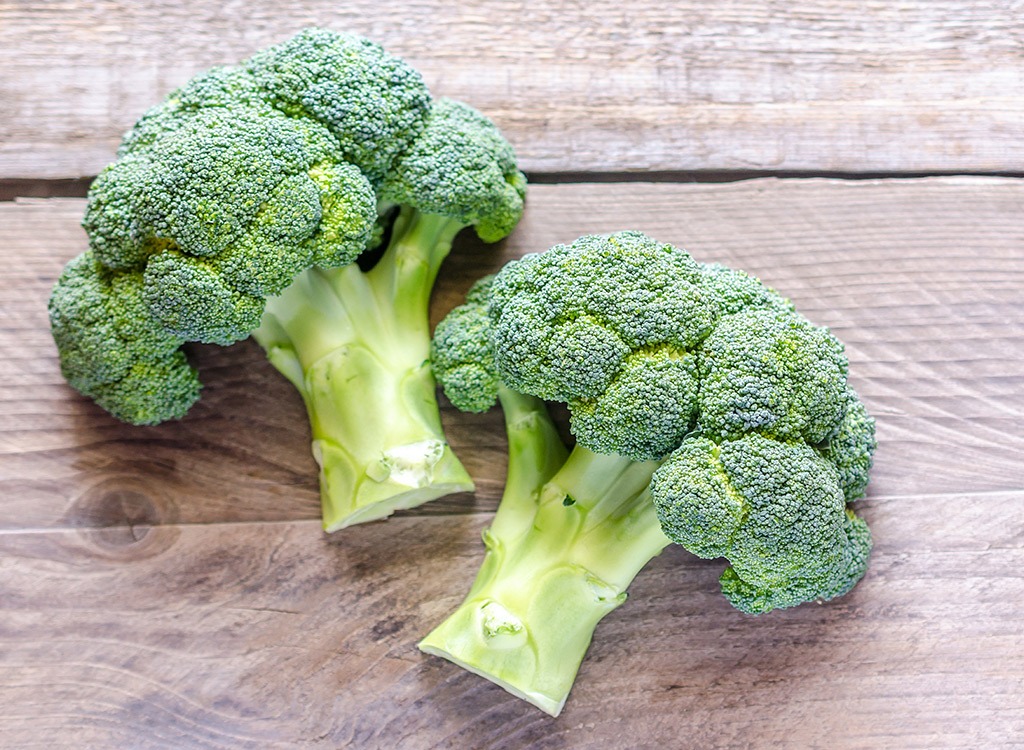
Though you can’t ensure you won’t contract diseases with age, you can give your body a fighting chance by filling your diet with the essential nutrients it needs to perform at its highest level. Broccoli is an excellent sidekick to keep your system healthy. Poon explains broccoli is a member of the ‘brassica’ family, a collection of veggies known for their disease-battling benefits. The brothers and sisters of broccoli include cauliflower, cabbage, kale, mustard, and others.
“Plants in the brassica family have been shown to protect against the development of various diseases from cancer to diabetes and cardiovascular and neurodegenerative diseases,” says Poon. “Brassica’s amazing health benefits are thought to be because of the combination of vitamin, mineral fiber, antioxidant, and glucosinolate content.”
Now that you know what happens when you eat broccoli, here’s What Happens to Your Body When You Eat Cauliflower.
